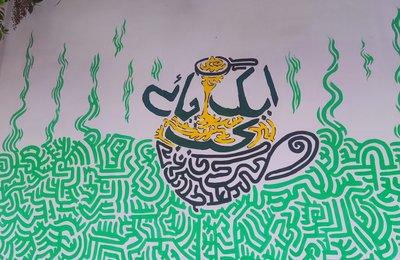On the morning of 19 May 2010, internet users in Pakistan found themselves unable to access either the Facebook or Youtube websites. This turned out to be as a result of a government crackdown on websites publishing un-Islamic content.
Even though some young people are unhappy over the decision of a High Court to block their favourite websites, the majority of adult Muslims support the decision. The action of the government was triggered by a Facebook group inviting people to draw cartoons of the Prophet Muhammad, a hugely offensive act to Muslims.
Anger has been mounting in Pakistan and the rest of the Muslim world over internet sites disrespecting their religious figures. In 2005, the Muslim world strongly reacted against a Danish newspaper (the Jyllands-Posten) publishing caricatures of the Prophet Muhammad. Some blogs who republished the cartoons were then blocked in Pakistan. For Muslims, it was thought to be a conspiracy against the Muslim world by the West, especially as it came during a sensitive time in Muslim-West relations, just a few years after the 9/11 terrorist attacks. All over the Muslim world, people protested against the blasphemous cartoons through street agitations; tens of thousands of Muslims came out to demand respect for their religion.
In response to a roar of anger in the Muslim world, American cartoonist Molly Norris, whose work inspired the controversial Facebook group "Everybody Draw Mohammad" issued an apology and also condemned the Facebook page. The group basically dedicated 20 May 2010 to draw the Prophet Muhammad and wrote "this page was created for free discussion of brutality of the radical aspects of Islam". Quite simply, whoever created this page wanted to spread hatred against Islam and Muslims. Sadly, over 14,000 people have joined the group to share their hatred of Muslims by drawing the Prophet Muhammad. As of 21 May 2010, the page still exists on Facebook.
If blocking such controversial groups on Facebook is considered to be a violation of the freedom of expression, especially in the West, then in the Muslim World perhaps Facebook and other social networking sites will remain blocked. Therefore, there is a need to re-initiate a discussion on "freedom of expression", with a focus on respect for all religious beliefs and cultures. Here, it is important to mention that Islam strictly prohibits the depiction of any prophet as declares such acts as blasphemous, and this was the reason that Muslim across the world protested over the publication of cartoons of the prophet Muhammad in the Denmark.
The real tensions that do exist between the West and the Muslim world do not justify the use of term the "Clash of Civilizations", coined by Samuel P. Huntington in 1996 and in common usage since. There are certainly events widening the gap between two groups of people. But what the world needs in the 21st century is a better understanding of the so-called “other”, their cultures, traditions, and religious beliefs, in order to foster understanding. This understanding will pave the way for respect of others and will promote values of peace and harmony in and between our societies.
Zahid Shahab Ahmed, Pakistan Local Correspondent. 21 May 2010




